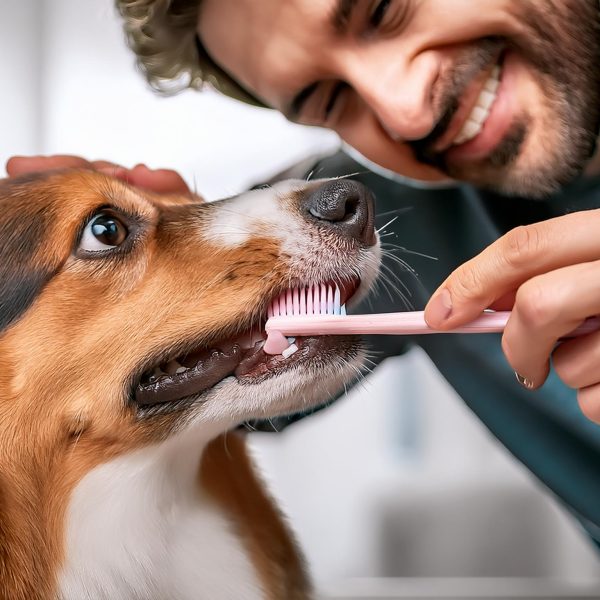Lately, there has been a surge in owners showing keen interest in holistic health practices for their furry friends. With a deepening understanding and care for their pets’ well-being, many are turning towards natural remedies and therapies as alternatives or complements to conventional veterinary care. Holistic pet care focuses on treating the whole animal, taking into account emotional and psychological aspects of their health. This article delves into some natural remedies and therapies embraced in holistic pet care.
Understanding Holistic Pet Health
Holistic pet health prioritizes the overall wellness of animals rather than simply addressing specific symptoms or illnesses. This approach factors in elements like diet, environment, lifestyle, and emotional well-being. The ultimate objective is to establish a state of harmonious health that can aid in preventing diseases and supporting longevity.
Natural Remedies for Pets
Herbal Medicine
Herbal medicine has a history of being used to address health issues in both humans and animals alike. Numerous herbs possess healing properties that can treat a spectrum of conditions in pets. For instance:
- Echinacea: Renowned for its immune-boosting effects, echinacea can assist pets in combating infections.
- Chamomile: Commonly used to help ease anxiety and aid in digestion.
- Turmeric: Known for its anti-inflammatory properties, turmeric can be beneficial for pets dealing with arthritis or other inflammatory conditions.
It’s important to consult with a veterinarian who’s well-versed in herbal medicine when considering herbal remedies to ensure the right dosage and safety precautions are taken.
Homeopathy
Homeopathy, a natural treatment approach, involves using highly diluted substances to trigger the body’s innate healing mechanisms. Remedies are selected based on the concept of “like cures like,” where a substance causing symptoms in a healthy individual can be used to address similar symptoms in an ill animal. Some common homeopathic remedies for pets include:
- Arnica: Used for pain relief and reducing swelling.
- Nux Vomica: For digestive issues like vomiting and diarrhea.
- Aconite: For sudden onset conditions such as fever or shock.
It’s essential to seek guidance from a qualified practitioner when administering homeopathic treatments.
Essential Oils
Essential oils, derived from plants, are highly concentrated extracts that offer therapeutic benefits when used appropriately. They can serve purposes like alleviating anxiety, repelling insects, and bolstering the immune system. Some popular essential oils for pets are:
- Lavender: Known for its calming properties, lavender can help alleviate stress and anxiety in pets.
- Peppermint: Used for soothing digestive problems and keeping insects away.
- Frankincense: With anti-inflammatory qualities, frankincense can aid the immune system.
Remember to use essential oils carefully as some may be harmful to pets. Always dilute them and seek advice from a veterinarian before using.
Natural Therapies for Pets
Acupuncture
Acupuncture, a traditional Chinese healing practice, involves inserting thin needles into specific body points to enhance energy flow and encourage healing. It can address conditions such as:
- Chronic pain: e.g., arthritis or hip dysplasia.
- Neurological issues: like seizures or spinal cord injuries.
- Digestive problems: such as vomiting or diarrhea.
Pets generally tolerate acupuncture well and can experience relief when administered by a skilled practitioner.
Chiropractic Care
Chiropractic treatment focuses on adjusting the spine and joints to enhance alignment and movement function. This therapy is beneficial for pets dealing with musculoskeletal challenges like:
- Joint discomfort: such as arthritis or hip dysplasia.
- Back pain: Often due to spinal misalignment or injury.
- Mobility issues: Improving range of motion and overall mobility.
When it comes to adjustments, it’s best to have a veterinarian trained in animal chiropractic care perform them for safety and effectiveness.
Massage Therapy
Massage therapy offers numerous benefits for pets, such as relaxation, enhanced circulation, and pain relief. Different techniques like Swedish massage for relaxation, deep tissue massage for chronic pain, and trigger point therapy for mobility improvement can be tailored to meet the pet’s specific needs. Regular massages can help keep pets healthy and happy.
Reiki
Reiki is an energy healing practice that involves transferring healing energy from the practitioner to the animal. This therapy can reduce stress, promote relaxation, and aid in the healing process. Reiki is especially helpful for pets dealing with chronic pain, anxiety, stress, or behavioral issues by providing comfort and emotional support. Whether done in person or remotely, Reiki offers a versatile option for pet therapy.
Incorporating Holistic Methods with Traditional Veterinary Care
While holistic methods can bring about significant advantages, they are not meant to substitute conventional veterinary care. Instead, they can be used in conjunction with traditional treatments to offer a comprehensive approach to pet healthcare. It’s important to collaborate with a veterinarian who’s receptive to holistic practices and can assist in integrating natural remedies and therapies into your pet’s healthcare regimen.
Holistic approaches to pet health, which encompass natural remedies and therapies, provide a comprehensive way to enhance the well-being of our furry friends. By taking into account the whole animal and addressing physical, emotional, and psychological aspects of health, holistic care can help prevent ailments, manage long-term conditions, and promote overall wellness. As with any form of treatment, it is essential to seek advice from a knowledgeable veterinarian to ensure that holistic methods are safe and beneficial for your pet.








